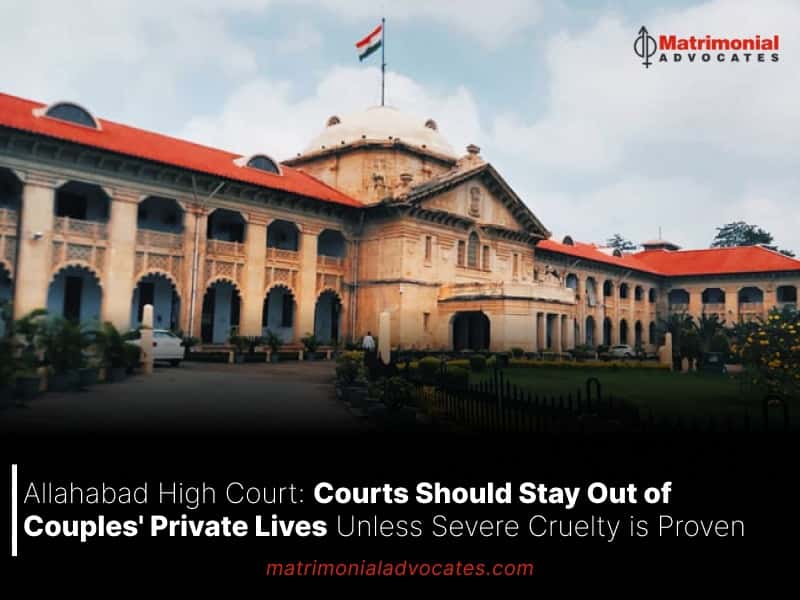
The Court was dealing with an appeal moved by a woman against grant of divorce in the case initiated by her husband.
The Allahabad High Court recently highlighted that the private behavior of a married couple falls outside the court’s jurisdiction. This statement came from a Division Bench, including Justice Saumitra Dayal Singh and Justice Donadi Ramesh, while they were hearing an appeal from a woman contesting her husband’s divorce. The Bench noted that differences in intimate preferences between spouses should ideally be addressed by the couple themselves, without court involvement.
“What personal likes, preferences and habits, acts a party to a marriage may feel inclined to practise and indulge in and desire their partner to participate in, within the confines of that relationship that too involving intimate moments is not for the Court to explore or examine unless they involve acts of ex facie extreme cruelty and or depravity,” the Court said.
The court commented on the husband’s allegation of cruelty as a basis for divorce. The couple married in 1999, and the husband sought a divorce just 11 months later, with a family court ultimately ruling in his favor in 2015. In challenging the divorce, the wife’s counsel contended that the husband’s petition for marriage dissolution was invalid since it was filed within a year of their marriage. The High Court agreed, stating that according to the Hindu Marriage Act, filing for divorce within one year of marriage is not permitted.
“In fact on a wholesome reading of the provision it reveals that cause of action to dissolve a Hindu marriage may not arise to a party thereto, within the first year of marriage, except in cases involving ‘extreme hardship’ or ‘extreme depravity’ suffered by the petitioner. Barring those two contingencies, no other exist.”
The court further stated that, even in such situations, a formal application must be made to request permission to file a divorce petition within the first year of marriage. Additionally, the court emphasized that any decision made after one year does not negate the initial legal restriction.
“If that petition could not be filed, because no cause of action arose, the petition may not become competent by passage of time as cause of action may only be seen to arise with reference to the date of presentation of a petition, and not later,” it reasoned.
The Bench noted that the trial court should have considered this issue since the family court did not address the wife’s objections. Concerning the allegations of cruelty, the High Court pointed out that the family court mentioned the wife’s actions during the legal proceedings, specifically noting that she had filed 3-4 cases against her husband.
“That was not the cruelty alleged by the respondent. It was extraneous to the dispute,” it said, adding how the wife fought to resist divorce can never be construed as cruel behaviour.
The Court determined that there were no valid reasons for granting the divorce, emphasizing that the wife had been subjected to unnecessary litigation. As a result, it allowed the appeal, reversing the family court’s decision, and imposed a cost of ₹50,000 on the husband.
“We are informed that the respondent had deposited Rs. 2,50,000/- before the learned Court below in compliance to the impugned judgment and order. Let costs awarded be paid therefrom. The balance amount together with accrued interest be refunded to the respondent, after ensuring that all recoveries outstanding against the respondent towards maintenance amount awarded to the appellant are satisfied,” it ordered.





